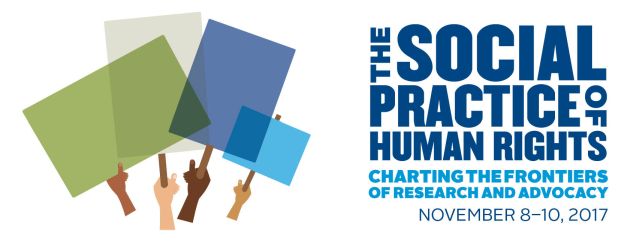
Start Date
11-8-2017 3:30 PM
Keywords
Conflict and mass displacement, poverty, inequality and exploitation
Abstract
U.S. immigration enforcement practices have spread to Mexico, resulting in apprehension rates of Central American migrants that rival those of the U.S. In 2015, deportations of migrants from Guatemala, Honduras, and El Salvador in Mexico exceeded 165,000, more than twice the number of U.S. deportations to this region.
Enforcement-only priorities surrounding immigration policy in Mexico have reinforced discriminatory treatment, poverty, inequality, and exploitation toward the indigenous and migrant populations. These circumstances have particularly impacted indigenous Guatemalan Mayans who sought refuge in Mexico during the 1980s and continue to face obstacles for their legalization by the Mexican state, in violation of their human rights.
Specifically, I will share ethnographic findings from a three-year collaboration to obtain legalization for indigenous Mayans from Guatemala who for more than thirty years remained stateless in Mexico and the U.S.
I will discuss how reduced legal options to regularize status created barriers to political, economic, and cultural incorporation in Mexico and the U.S. and left significant family members — documented and undocumented alike — vulnerable to deportations and family separations. I will also identify how legal status was obtained for twenty-six stateless subjects in late 2016. Tens of thousands who fled military conflict in Guatemala, however, remain stateless throughout the Americas. Recommendations will be made on how scholars, advocates, and practitioners concerned on the topics of conflict, mass displacement, poverty, inequality, and exploitation can promote human rights protections for this population.
From Stateless to Citizen: Trust, Disclosure, and Collaboration with Guatemalan Refugees as Human Rights Practice
U.S. immigration enforcement practices have spread to Mexico, resulting in apprehension rates of Central American migrants that rival those of the U.S. In 2015, deportations of migrants from Guatemala, Honduras, and El Salvador in Mexico exceeded 165,000, more than twice the number of U.S. deportations to this region.
Enforcement-only priorities surrounding immigration policy in Mexico have reinforced discriminatory treatment, poverty, inequality, and exploitation toward the indigenous and migrant populations. These circumstances have particularly impacted indigenous Guatemalan Mayans who sought refuge in Mexico during the 1980s and continue to face obstacles for their legalization by the Mexican state, in violation of their human rights.
Specifically, I will share ethnographic findings from a three-year collaboration to obtain legalization for indigenous Mayans from Guatemala who for more than thirty years remained stateless in Mexico and the U.S.
I will discuss how reduced legal options to regularize status created barriers to political, economic, and cultural incorporation in Mexico and the U.S. and left significant family members — documented and undocumented alike — vulnerable to deportations and family separations. I will also identify how legal status was obtained for twenty-six stateless subjects in late 2016. Tens of thousands who fled military conflict in Guatemala, however, remain stateless throughout the Americas. Recommendations will be made on how scholars, advocates, and practitioners concerned on the topics of conflict, mass displacement, poverty, inequality, and exploitation can promote human rights protections for this population.


